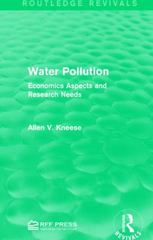Answered step by step
Verified Expert Solution
Question
1 Approved Answer
HOW TO RESPONSE WITH 1 and 2 DISCUSSION? 1. The United States Government should never influence the economy unless the benefit is for its citizens.
HOW TO RESPONSE WITH 1 and 2 DISCUSSION? 1. The United States Government should never influence the economy unless the benefit is for its citizens. Unless the citizens prosper then the government revenue stream will decline. Why would a government allow legislation pass if the benefit of passage costs every citizen an extra $1500 a year? For example, US government got involved in the healthcare industry to provide all citizens with affordable healthcare. While the monthly premiums maybe low or non existent, due to the passage of affordable healthcare, the deductible and out of pocket expense are out of reach. One will never reach these points unless very sick and wealthy. I was on the ACA and while I did not pay a monthly premium due to my household and income level, I still had to pay half the price of a two life sustaining serums which still equaled 25% of my monthly income. The more I have to spend on one industry the less I have to spend on another. Property tax, or taxes in general is where government needs to influence. The less earnings the government takes the more a consumer will spend, thus creating revenue via sales tax. Now if government was willing to keep taxes low they would receive a high steady volume of revenue. When taxes are high and income is taxed at a high rate people look for ways to pay less or cheat the system. You keep property tax low, more people move into the county, this creates more revenue. More business move in creating more revenue. If taxes on earnings then people are buying houses and cars, the banks make money and the government makes money. But when the opposite is in effect, while the above mentioned still happens, the revenue is less for all and less money is being spent. 2. The government should have influenced the economy through our legislator's votes, and U.S Congress laws are passed, allowing money to be allocated to provide districts with hospital bridges for their congressional districts. Much of this is done through monetary and fiscal policies that regulate taxes, money allocations, and interest rates. That is a minor part of how the government helps the economy. They also set tariffs on companies that move outside the United States to make the cost cheaper and sell it back to the U.S. at a higher price, making companies come back to the U.S. and bringing jobs back to America. The government can make laws and regulations that help the economy as needed, which ordinary people would not be able to do because of a lack of knowledge and ability to be able to enforce procedures into place. Laws are placed that help the economy by providing healthcare and negotiating with insurance companies. There are so many ways that the government supports the economy with the power to negotiate and pass laws
Step by Step Solution
There are 3 Steps involved in it
Step: 1

Get Instant Access to Expert-Tailored Solutions
See step-by-step solutions with expert insights and AI powered tools for academic success
Step: 2

Step: 3

Ace Your Homework with AI
Get the answers you need in no time with our AI-driven, step-by-step assistance
Get Started


